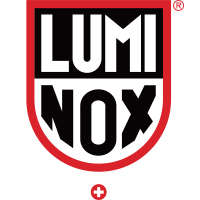We’ve awarded Napamon Chantarapitak as our September Everyday Hero. She is a Squadron Leader in the Royal Thai Air Force working as a Flight Surgeon and medic, whilst also being a doctor at Bangkok’s two largest hospitals. Read more about Napamon’s story below.
Luminox: Could you please provide a brief background about yourself?
Napamon: My name is Squadron Leader Napamon Chantarapitak. I am working under the Royal Thai Air Force in the Directorate of Medical Services and as a Flight Surgeon, and also serve as a Rhinologist at Bhumibhol Adulyadej Hospital. Currently, I am studying to become a sub-specialist in sinus surgery at King Chulalongkorn Memorial Hospital. I have been with the Air Force for almost 11 years and have been posted to several air wing bases to serve military officers, including Royal Thai Air Force Base Wing 1 in Korat, located in the northeastern part of Thailand, and Wing 2 Khok Kathiam Air Force Base in Lopburi province. As part of my role in the Air Force, I have participated in many special combat exercises, such as Cobra Gold, Cope Tiger, and Thai Boomerang. My role involves not only providing medical care to military officers and their families but also extending my expertise to people living in remote areas and regular patients alike.
Luminox: What inspired you to pursue this line of work?
Napamon: The most important reason I chose this pathway in life is my parents. Both of them are doctors who are very empathetic towards their patients. They taught me, not by telling me directly, but by showing me through their actions, that when people are suffering or in need of help, you don't just sit back—you reach out to help. Seeing them do this every day, helping their patients, the patients' families, and those around them, deeply rooted in me the desire to become who I am today.
They always say, “Becoming a doctor requires a special kind of heart to fulfill the role. Without that heart, the role feels incomplete. Today, society often lacks empathy—the ability to walk in someone else's shoes and recognize the value in someone else’s experience.” My parents instilled in me, through their actions, the moral foundation that I should carry forward.
Luminox: What is your definition of an "Everyday Hero"?
Napamon: For me, the definition of an "Everyday Hero" isn't necessarily something big or grand like the word "hero" might suggest. I believe that small acts of kindness can also be heroic. For example, when you work in a hospital and a patient comes to you suffering and in need of help, simply being kind, offering a smile, or asking how you can help them or ease their pain can make a significant difference. That, to me, is the essence of being a hero—a person who spends every day doing something meaningful to help others or save lives. It’s not just about a one-time act of bravery or a special occasion, but about the small acts they do every day.
Luminox: What is the most challenging aspect of your work related to saving lives? Can you please share some experiences you've had to cope with?
Napamon: The most challenging aspect of my work is making quick, critical decisions in high-stakes environments where lives hang in the balance. As a doctor and a flight surgeon, I often face situations where the difference between life and death is measured in seconds.
moments was vital to the pilot’s survival. Fortunately, the pilot survived, thanks to the training we undergo to handle such situations.
Another challenging moment was during the first COVID-19 outbreak in 2019, which severely impacted Wing 2 base. Soldiers and officers, living in close quarters, were especially vulnerable. At that time, we knew so little about the virus, and as frontline medical personnel, we were not only battling an invisible enemy but also risking our own lives with every patient we treated. Despite the uncertainty and fear, retreat was never an option.
Luminox: How have you overcome those challenges?
Napamon: To overcome these challenges—this may sound very religious—but I often turned to Buddha’s teachings and read many books by the Dalai Lama. These practices helped me stay grounded and focused during tough times.
Also, for me, these challenges can also be seen as lessons. The COVID-19 pandemic, for example, taught me that life is very short and fragile and shouldn't be taken for granted. It reminded me to live life meaningfully and make every day and every second count.
Luminox: In your work, how does "time" play a role in the tasks or missions you undertake?
Napamon: Time is a crucial factor in my work, particularly in emergency medical situations. Every second can be critical, whether it’s performing a life-saving procedure, stabilizing a patient, or coordinating with a team during a mission.
In the past, I didn’t wear a watch often, but I was once told by a senior professor, "How can you be a doctor without a watch, especially one with a second hand?" Now I understand. We constantly check the second hand on our watches, especially when patients have a very low heart rate or are in a coma. Without a watch with a second hand, we lack a vital tool. So, yes, time—and having a watch—is extremely important in my work.
Luminox: Do you have any advice for those who want to work for society or help others, or any message for the 'Everyday Heroes' and those who work behind the scenes to support people and society every day?
Napamon: Firstly, this task is not simple. It requires a lot of sacrifice. You will lose a lot of personal time, sleep less, and often miss meals. But beyond sacrifice, you need to have a heart for this work, and that heart must be empathetic enough to truly help others. When patients come to us in suffering, even a single smile can make a significant difference in their experience. To those who want to be in this position, it's crucial to cultivate a kind and empathetic heart.
And to those who work behind the scenes, everyone is a hero. In my field of work, in hospitals, doctors are often called heroes, but in reality, helping a patient requires support from many, including nurses, administrative officers, and others. Those who work behind the scenes play a vital role. The road to recovery has no meaning without the "little cars" that provide support along the way. I believe everyone is a hero in their own way, and I want to say to all "Heroes" that your efforts do not go unnoticed. The impact you make is invaluable, and your dedication is what makes the world a better place.
Luminox: What do you think about the "Everyday Hero" campaign organized by Luminox?
Napamon: I think the "Everyday Hero" campaign by Luminox is an excellent initiative. It shines a light on the incredible work that often goes unnoticed and celebrates those who dedicate their lives to helping others. It’s a reminder of the importance of these efforts and encourages everyone to recognize and appreciate the heroes in our everyday lives.
Napamon received the F-117 Nighthawk™ x Skunk Works® 6442 pilot watch as well as the Atacama Field 1960 for her work in the Royal Thai Air Force and the local communities. Check out the watches below:
F-117 Nighthawk™ x Skunk Works® 6442
Atacama Field 1960 - 1970.SET



